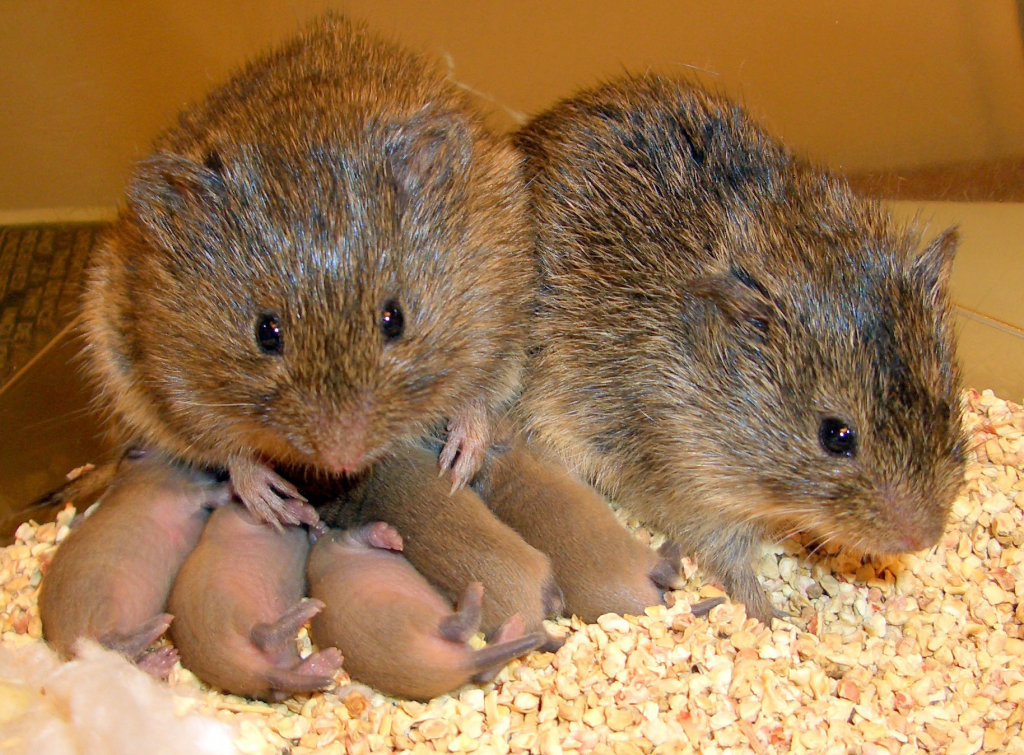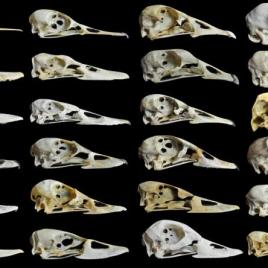
A mother and father vole huddle together over a nest of vole pups.
(Image by Todd Ahern)
Voles are famous examples of social monogamy, a rare phenomenon in the animal kingdom. A recent study set to find out if there’s anything unique about these loving rodents’ brain connections that helps them form such strong bonds with their mate. Researchers specifically focused on the corticostriatal circuit in the brain, which is known to control the animals’ ability to alter their behaviour to obtain rewards. It turns out that, when potential partners begin to consistently activate the reward circuit in each other, this activation reliably signals future bonding. Researchers could influence the female’s preference for partners by activating the corticostriatal circuit using a light-mediated technique. Study authors note that further research is needed to determine whether the reward system activation is necessary, as opposed to just sufficient, for increasing bonding behavior in voles.
Authors:
Elizabeth A. Amadei, Zachary V. Johnson, Yong Jun Kwon, Aaron C. Shpiner, Varun Saravanan, Wittney D. Mays, Steven J. Ryan, Hasse Walum, Donald G. Rainnie, Larry J. Young & Robert C. Liu
Corresponding author:
Robert Liu, Emory University, Atlanta, Georgia, US, Email: robert.liu@emory.edu
Original paper published in Nature on May 31, 2017.

